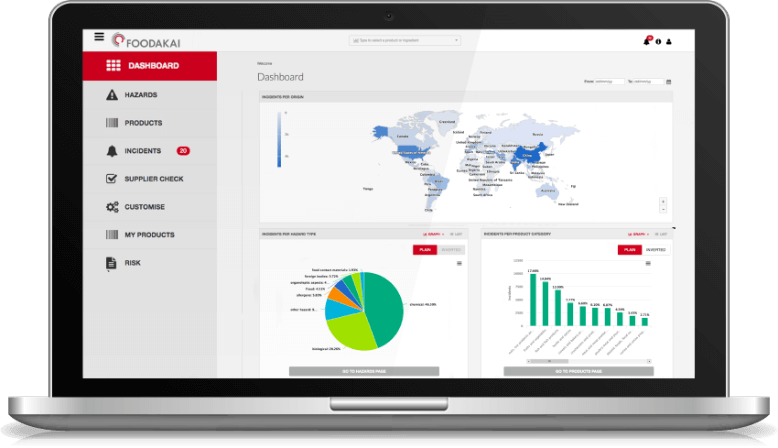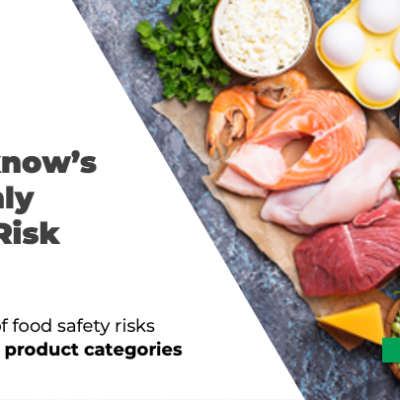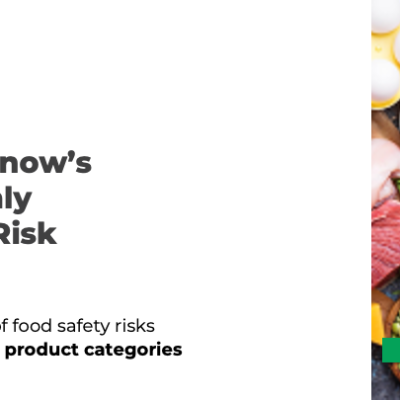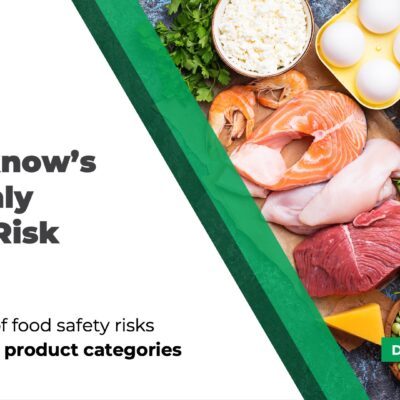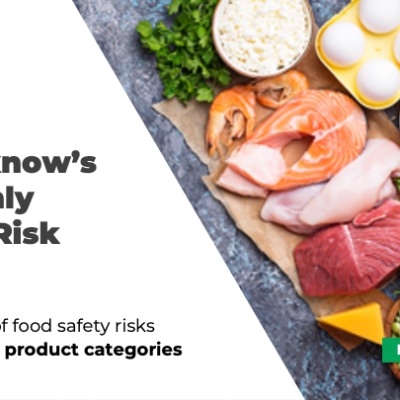
Harnessing AI to Predict and Prevent Costly Recalls: Revisiting 3 Past Outbreaks
Can AI-powered forecasts be trusted and how do they work?
This was the main question contemplated during last week’s webinar, by Agroknow and FOODAKAI, that Chris Elliott, Professor of Food Safety and founder of the Institute for Global Food Security at Queen’s University Belfast, and Ilias Antonopoulos, Machine Learning Engineer at Agroknow tackled in their discussion.
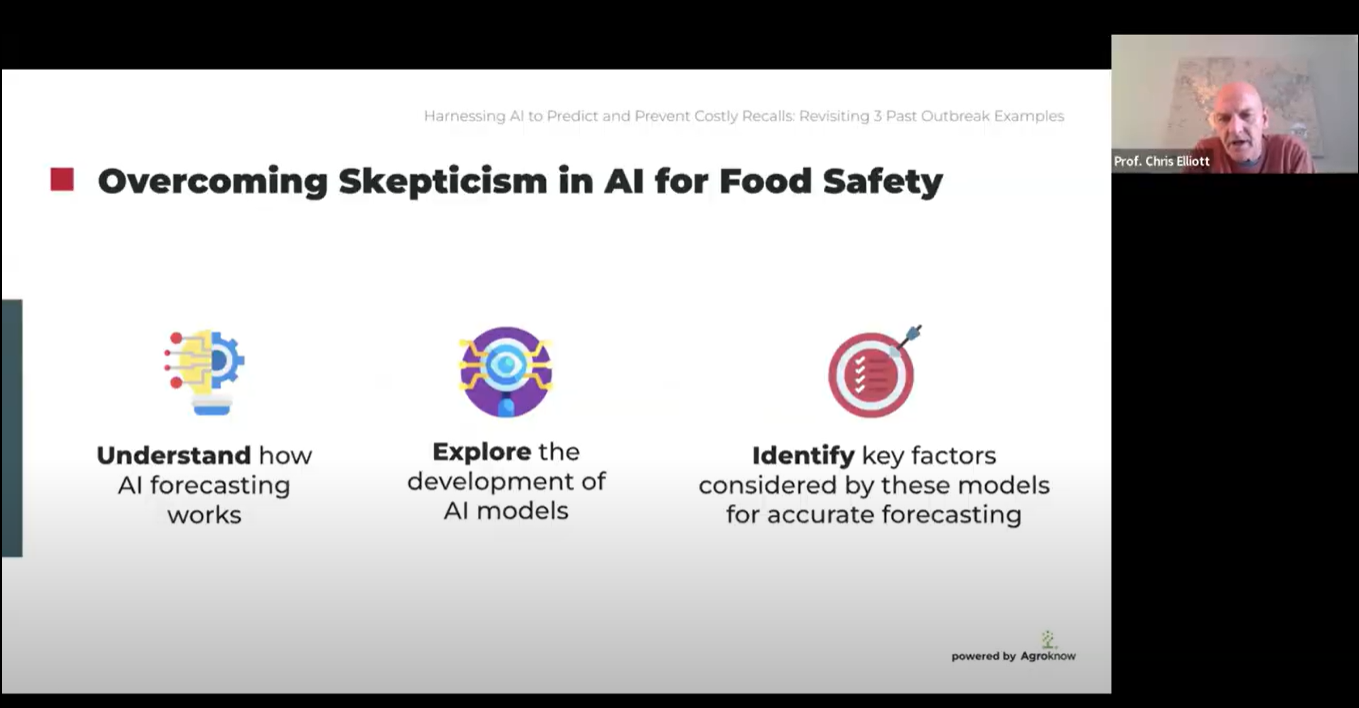
As ensuing consumer safety is paramount for food & beverage companies worldwide, they are increasingly asking for ways to be able to anticipate future risks for their products and avoid costly recalls or even a large-scale outbreak.
New technologies and especially AI have a pivotal role to play in enabling food & beverage companies to safeguard their products from unexpected risks & hazards due to global supply chain disruptions, climate change, novel food risks etc.
AI has been heralded as one of the most promising solutions, yet many still consider it an experimental solution and consider it with increased skepticism. However, AI is no longer an experiment but a proven and tested solution.
How?
Watch the recording here.
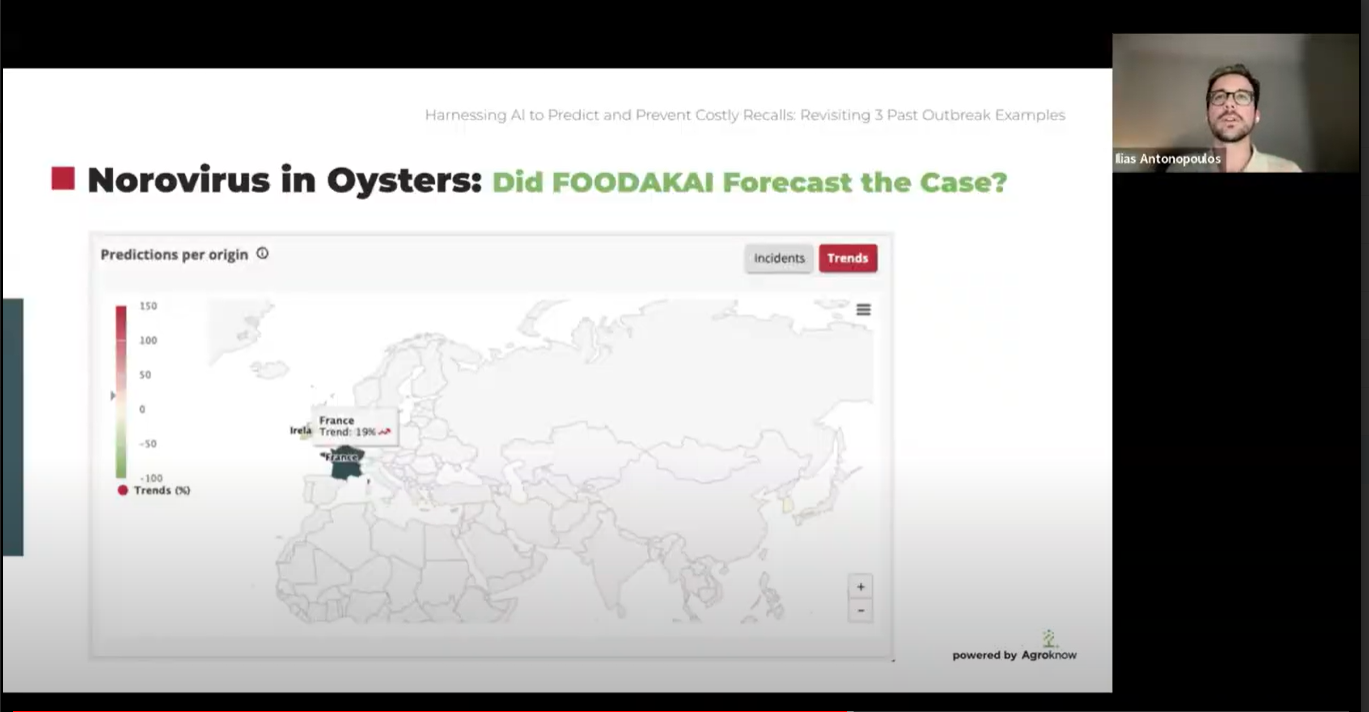
In the “Harnessing AI to Predict and Prevent Costly Recalls: Revisiting 3 Past Outbreak Examples”, Professor Chris Elliott, with the help of Ilias Antonopoulos delved into how AI forecasting works, the development of forecasting models and took a look at 3 Outbreaks in 2023 and how they could have been anticipated with the aid of forecasting.
Some highlights of their discussion include:
- 73% of the webinar’s registrants voted that they believe that AI forecasting would help them to early identify emerging, unexpected risks so that they can include them in their risk mitigation strategies
- the growing challenges in food safety due to emerging risks, geopolitical unrest, and climate change, which are overwhelming traditional reactive methods used by food and beverage companies.
- the inclusion of more than 250 distinct factors to forecast future risk including historical incidents, lab test above/below limit, weather data etc.
- case studies demonstrating AI’s effectiveness in predicting food safety incidents, including norovirus in oysters, listeria in enoki mushrooms, and lead contamination in applesauce, showcasing how AI could have provided early warnings.
Watch the full discussion here.
Additionally, you can download the forecasting playbook here.
Want to receive helpful food safety intelligence in your inbox?
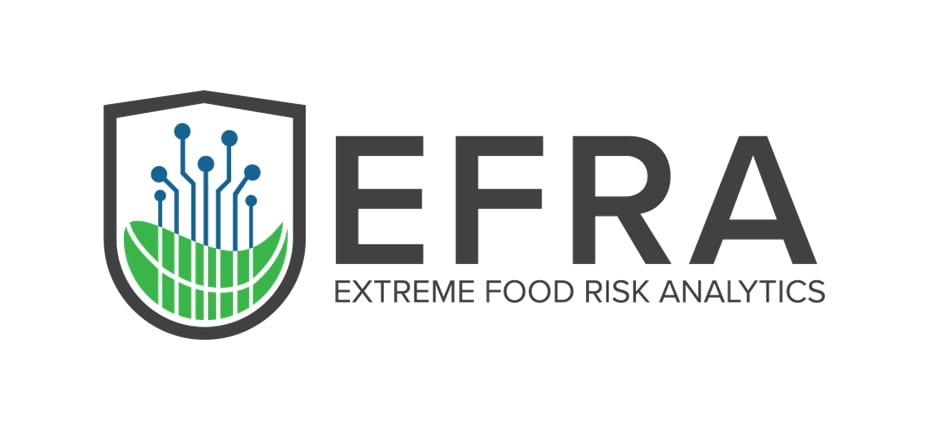 Funding for this research has been provided by the European Union’s Horizon Europe research and innovation programme EFRA (Grant Agreement Number 101093026). Funded by the European Union. Views and opinions expressed are however those of the author(s) only and do not necessarily reflect those of the European Union or European Commission-EU. Neither the European Union nor the granting authority can be held responsible for them.
Funding for this research has been provided by the European Union’s Horizon Europe research and innovation programme EFRA (Grant Agreement Number 101093026). Funded by the European Union. Views and opinions expressed are however those of the author(s) only and do not necessarily reflect those of the European Union or European Commission-EU. Neither the European Union nor the granting authority can be held responsible for them.

